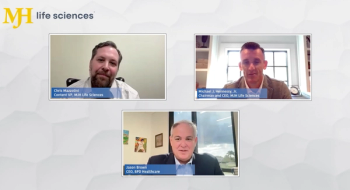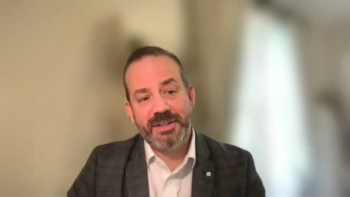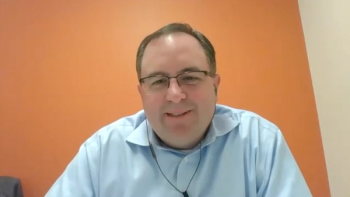
Peter Bach, MD, On Logistical Considerations of Treating with Kymriah
"Issues which are very sort of granular and boring are actually going to be incredibly important when you're talking about this kind of money."
Physician and epidemiologist Peter Bach, MD is the Director of Memorial Sloan Kettering’s Center for Health Policy and Outcomes. At the Mayo Clinic Center for Innovation's Transform meeting, he sat down with Healthcare Analytics News. In this part of our discussion, he touched on the controversial pricing of Kymriah, Novartis's novel new CAR-T treatment.
Transcript:
It's a fair question about Kymriah, the new CAR-T therapy from Novartis, and I've actually written about this a fair amount at this point.
I think the drug has a price that is so high that it's actually a little bit hard to process, it's half a million dollars for a single treatment, and we expected only to be used once in each patient. It may have a very long-term benefit for patients, and Novartis is going to only ask for reimbursement for it when the drug achieves response at one month.
The Institute for Clinical and Economic Review in Boston is going to do a full-scale evaluation of its price relative to other prices of drugs on the market, and relative to the value it brings. I actually would like to wait to see what they have to say: it's a very unusual drug, it's an unusual disease, the alternative treatments are very expensive, the way it's used and the type of outcomes we have all make it very difficult to assess.
For sure the sticker shock is pretty alarming: they have broken through by a full log, essentially, traditional prices in cancer with that drug. Those [other treatment] prices often don't hold up to health economic assessment, they often tend to be very high already.
I think it's not really clear how things like CAR-T therapies that cost half a million dollars will be paid for, who's going to take risks if you will during these periods where we're trying to figure out if the drug worked, or who's going to have ownership of the drug after it leaves the wholesaler, in this case leaves the company. All those issues which are very sort of granular and boring are actually going to be incredibly important when you're talking about this kind of money, but I think hospitals are going to have to look very seriously at the economics here because there's a lot of attendant costs.
There's ancillary services that may be needed if these drugs are giving them as an inpatient, there's no mechanism in place at least on the government side to pay at full cost, so this is going to be I think there's a lot of issues that will need to be straightened out yeah I think at least at launch, and you know I think Novartis must be saying things about this not that I'm aware of, but they must have a plan in place about where the drugs will be used. Presumably they'll initially roll out in the places that were either sites of clinical trials or places that have, you know, full ability in hematopoietic stem cell transplantation.






































